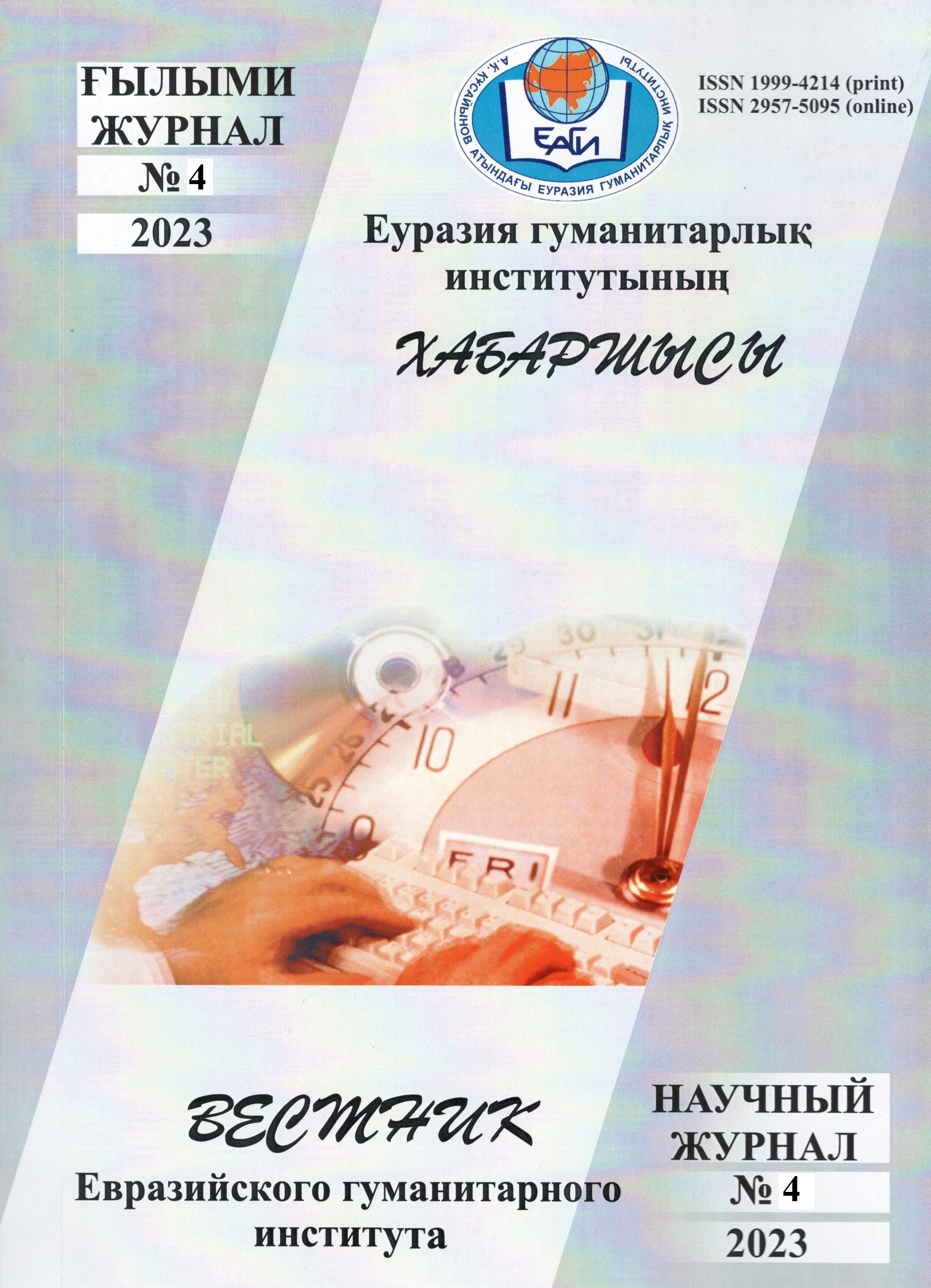*KAZAKH TERM FORMATION: TRADITIONAL PROCESSES AND MODERN DIRECTIONS OF DEVELOPMENT
Keywords:
terminology, term formation, term substitution, synthetic (morphological) method, syntactic (analytical) method, lexico-semantic method (conversion)Abstract
The paper proves that on the basis of linguistic data, the functioning of synthetic (morphological), syntactic (analytical) (unification, combination, combination, reduction of words) methods of term formation of the national sample, formed by analyzing the traditional processes of Kazakh term formation and the modern directionscontinues smoothly. Besides, suffixes that are currently being used productively and suffixes that are increasing in productivity are also indicated.
Russian suffixes, which are attached mainly to words from European languages and to words of the Russian language, are translated into Kazakh as follows: a) one Russian suffix with phonetic versions of one Kazakh suffix and b) one suffix with phonetic versions of several suffixes.
In the present paper, the term elements of «hybrid» terms composed with the participation of foreign language elements were classified as follows: elements used before the word (prefixes); elements used at the end of the word (affixodes). However, such elements are currently also being translated into Kazakh.
The following «positive» trends in modern Kazakh terminology formation can be noted: through lexico-semantic (conversion) creation an increase in the number of terms created as a result of metaphorical use based on national cognition; through Russian transliteration of terms that are in the lexical fund of the Kazakh language related to national values; borrowing terms from the speech of Kazakhs living abroad; Russian translation of words and phrases entered into the Russian language from European languages, as well as from the Russian language itself into the Kazakh language in various ways; the adoption of terms not only through the Russian language, but also directly from the English language, while based on their pronunciation, and not on spelling in Russian.
Also, the following «negative» trends are observed in Kazakh terminology: the emergence of a «new type» of ways of forming phrases that were not previously encountered in the Kazakh language, by structural, semantic and syntactic calculus from the Russian language; an increase in the use of «affixoids» (-aldy, -arty, -asty); strengthening the process of connecting words; parallel use of several equivalents of terms that have entered the Russian language from European languages; borrowing words that have entered the Russian language from European languages by spelling in Russian; borrowing words from European languages by spelling in these languages; increasing the number of «hybrid» terms formed with the participation of foreign elements.


